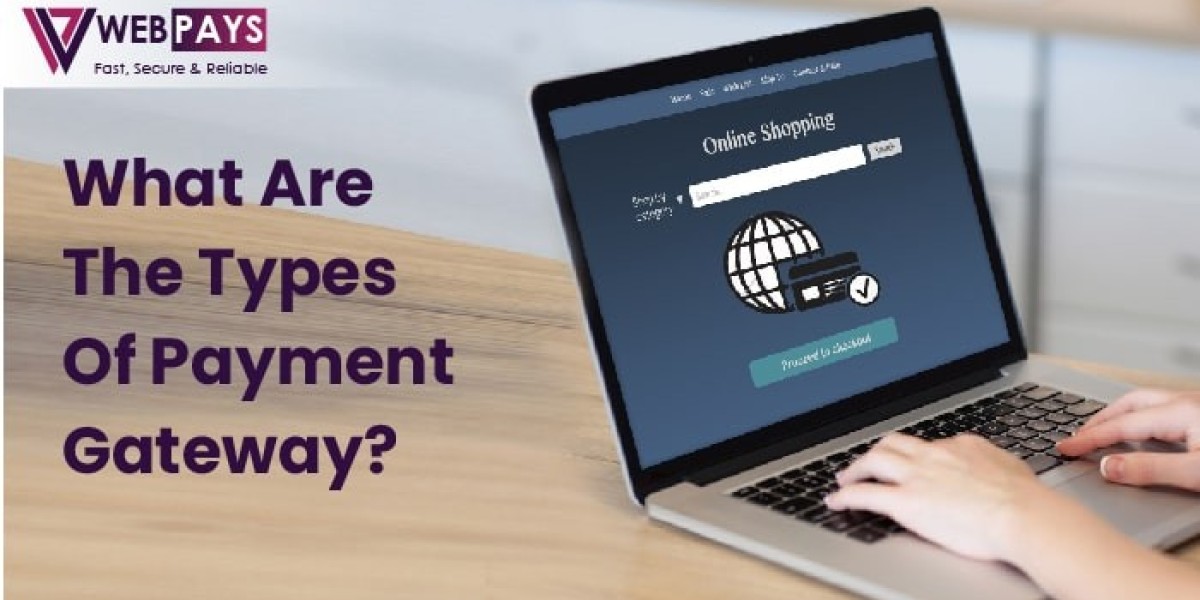In the bustling world of e-commerce, payment gateway integration serves as the essential bridge between businesses and their customers, facilitating secure and seamless transactions. These gateways come in various types, each with its unique features and functionalities tailored to meet the diverse needs of businesses and consumers. In this comprehensive blog, we'll explore the different types of payment gateways, their advantages, and why should you consider WebPays for payment gateway integration effectively to enhance your online transactions.
Understanding Payment Gateways
Payment gateways are online services that enable businesses to accept payments from customers via credit or debit cards, digital wallets, bank transfers, and other payment methods. These gateways securely transmit payment information between the customer's browser and the merchant's website, encrypting sensitive data to protect against fraud and unauthorized access.
Types of Payment Gateways
Hosted Payment Gateways:
Hosted payment gateways redirect customers to a secure payment page hosted by a third-party service provider. Here, customers enter their payment details, and upon completion, they are redirected back to the merchant's website. This type of gateway is easy to set up and requires minimal technical expertise, making it ideal for small businesses and startups.
Advantages of hosted payment gateway:
- Easy Setup: Hosted payment gateways typically have a straightforward setup process, making them accessible to businesses without technical expertise.
- Reduced Liability: Since payment processing occurs on the provider's secure servers, merchants have lower liability for handling sensitive payment data.
- Quick Deployment: Businesses can quickly deploy hosted gateways without extensive development work, allowing for faster implementation.
Disadvantages of hosted payment gateway:
- Limited Customization: Hosted gateways often provide limited customization options for the payment page, resulting in a less branded checkout experience.
- Redirected Checkout: Customers may find it inconvenient to be redirected to an external payment page, potentially leading to higher cart abandonment rates.
- Dependency on Provider: Businesses rely on the uptime and performance of the third-party provider's servers for payment processing, which could pose risks if the service experiences downtime.
Integrated Payment Gateways:
Integrated payment gateways are seamlessly integrated into the merchant's website or e-commerce platform, allowing customers to complete transactions without leaving the site. This type of gateway offers a more customized and branded checkout experience, with greater control over the user interface and customer journey. Integrated gateways are popular among medium to large businesses looking to provide a seamless checkout process for their customers.
Advantages Integrated Payment Gateways:
- Branded Checkout Experience: Integrated gateways allow businesses to maintain a consistent brand experience throughout the checkout process, enhancing brand recognition and trust.
- Seamless User Experience: Customers can complete transactions without being redirected to external payment pages, resulting in a smoother and more user-friendly checkout flow.
- Greater Control: Merchants have more control over the design and functionality of the payment interface, enabling customization to meet specific business requirements.
Disadvantages Integrated Payment Gateways:
- Complex Integration: Integrated gateways typically require more technical expertise and development effort to integrate into existing websites or e-commerce platforms.
- Maintenance Challenges: Businesses are responsible for maintaining and updating the integrated payment solution, which may require ongoing development resources and support.
- Potential Security Risks: Poorly implemented integrations could introduce security vulnerabilities, exposing sensitive payment data to potential breaches or fraud.
Direct Payment Gateways:
Direct payment gateways connect directly to a merchant's bank account, enabling real-time authorization and processing of transactions. Unlike hosted gateways, direct gateways handle payment processing on the merchant's website, providing greater control and flexibility over the transaction process. However, they require more technical expertise to set up and maintain.
Advantages of direct payment gateway:
- Real-Time Processing: Direct gateways enable real-time authorization and processing of transactions, allowing businesses to receive payments more quickly.
- Customizable Checkout: Merchants have full control over the checkout process, allowing for extensive customization to align with branding and user experience goals.
- Reduced Dependency: Businesses have greater autonomy over payment processing, reducing reliance on third-party providers and potential service disruptions.
Disadvantages of direct payment gateway:
- Technical Complexity: Setting up and maintaining direct gateways requires advanced technical knowledge and resources, which may be challenging for businesses without in-house expertise.
- Higher Security Requirements: Direct gateways impose greater security responsibilities on merchants, requiring robust measures to protect against potential data breaches or fraud.
- Compliance Challenges: Businesses must ensure compliance with industry regulations and standards, such as PCI DSS, to maintain the security and integrity of payment data.
Why Should You Consider WebPays For Payment Gateway Integration?
When it comes to payment gateway integration, WebPays offers several compelling reasons to consider:
- Expertise:
With years of experience in the payment processing industry, WebPays understands the unique needs and challenges of businesses looking to integrate payment gateways. Our team of experts can help you select the right gateway for your business and ensure seamless integration with your website or e-commerce platform. - Security:
We prioritize the security of our clients' transactions and sensitive financial data. Our payment gateway integration solutions come with state-of-the-art security features, including encryption, tokenization, and compliance with regulatory requirements, to protect against fraud and theft. - Flexibility:
Our payment gateway integration solutions are designed to cater to businesses of all sizes and industries. Whether you're running a small online store or a large e-commerce platform, we have the tools and expertise to support your payment processing needs. - Seamless Integration:
We offer seamless integration with leading payment gateways, e-commerce platforms, and other software systems, making it easy to set up and manage your payment processing infrastructure.
Conclusion
Payment gateways play a crucial role in facilitating online transactions, providing businesses with the tools they need to accept payments securely and efficiently. By understanding the different types of payment gateways and their advantages, businesses can select the right solution to meet their needs and enhance the customer experience. With WebPays as your payment gateway integration partner, you can enjoy peace of mind knowing that your transactions are secure, seamless, and optimized for success.



